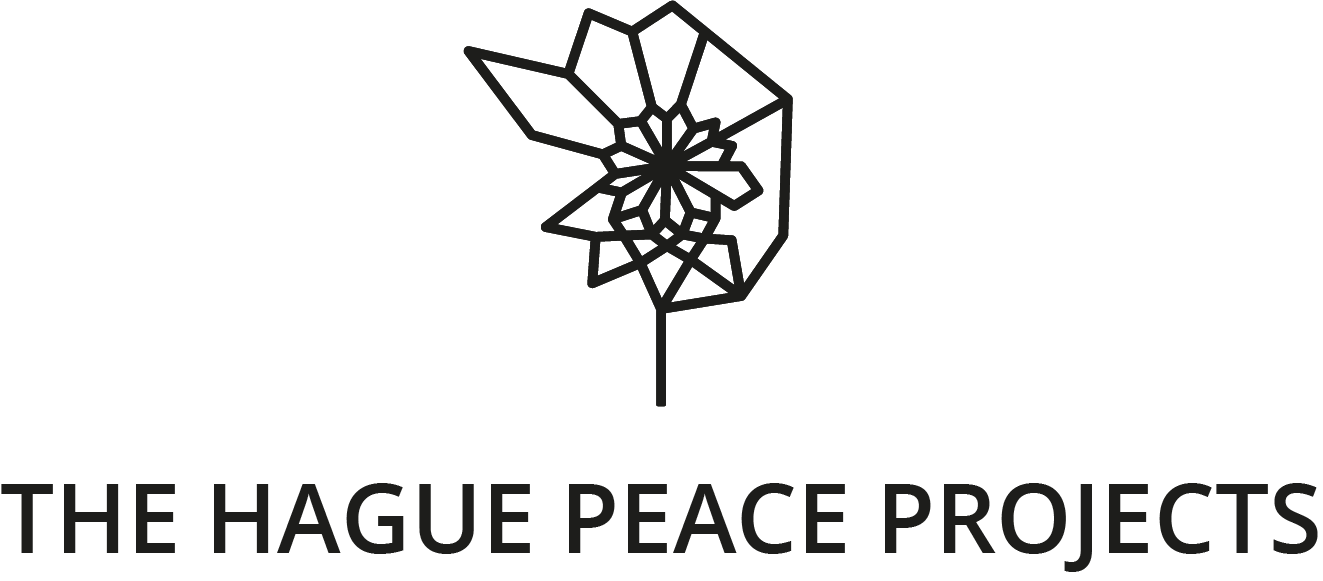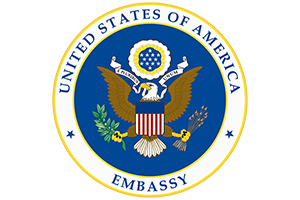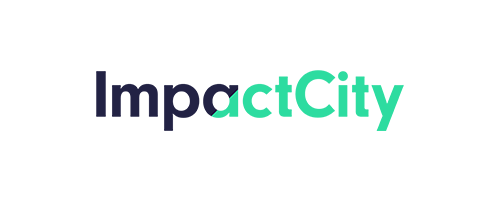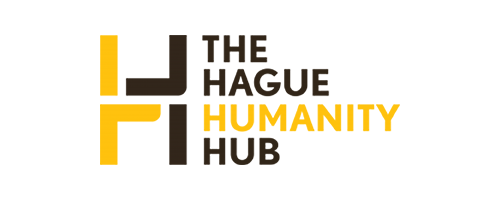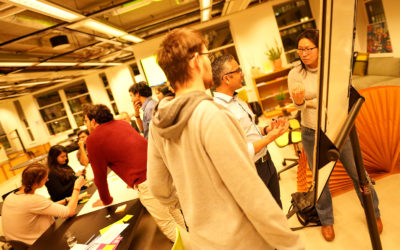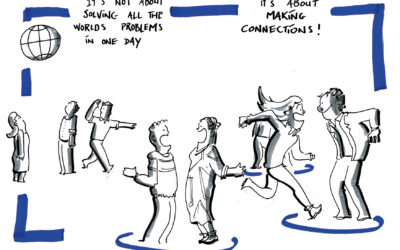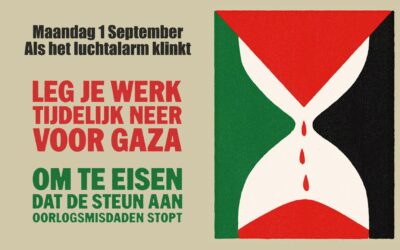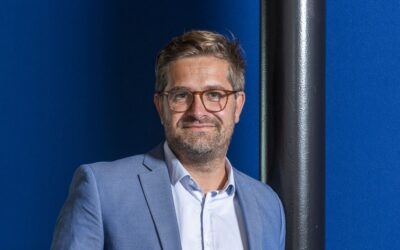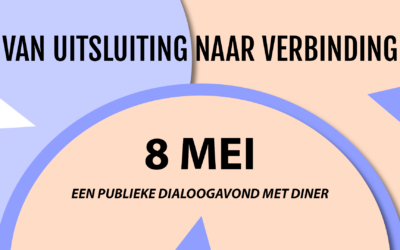The Hague Hacks 2018
By Nina Nout
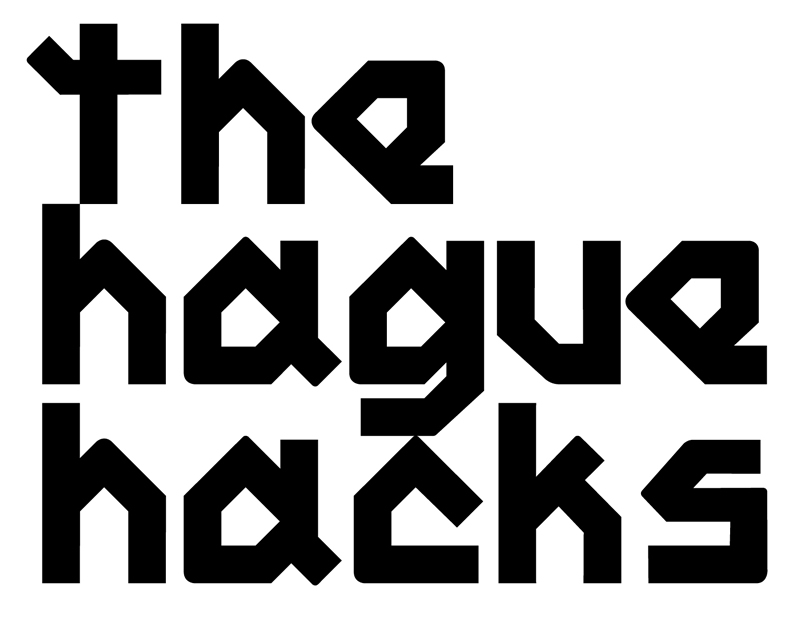
Hack. Hacking. Hacker.
These words are traditionally associated with gaining access to a computer system without permission. But a new generation of techies and problem solvers are reappropriating the word. In the last few decades, “Hackathons” have emerged as an exciting meet-up for computer programmers, coders, graphic designers, business professionals, project managers, companies, medical experts… everyone under the sun. All are welcome to Hackathons, as long as individuals share their talents and expertise to achieving a common goal.
The Hague Hacks is no exception.
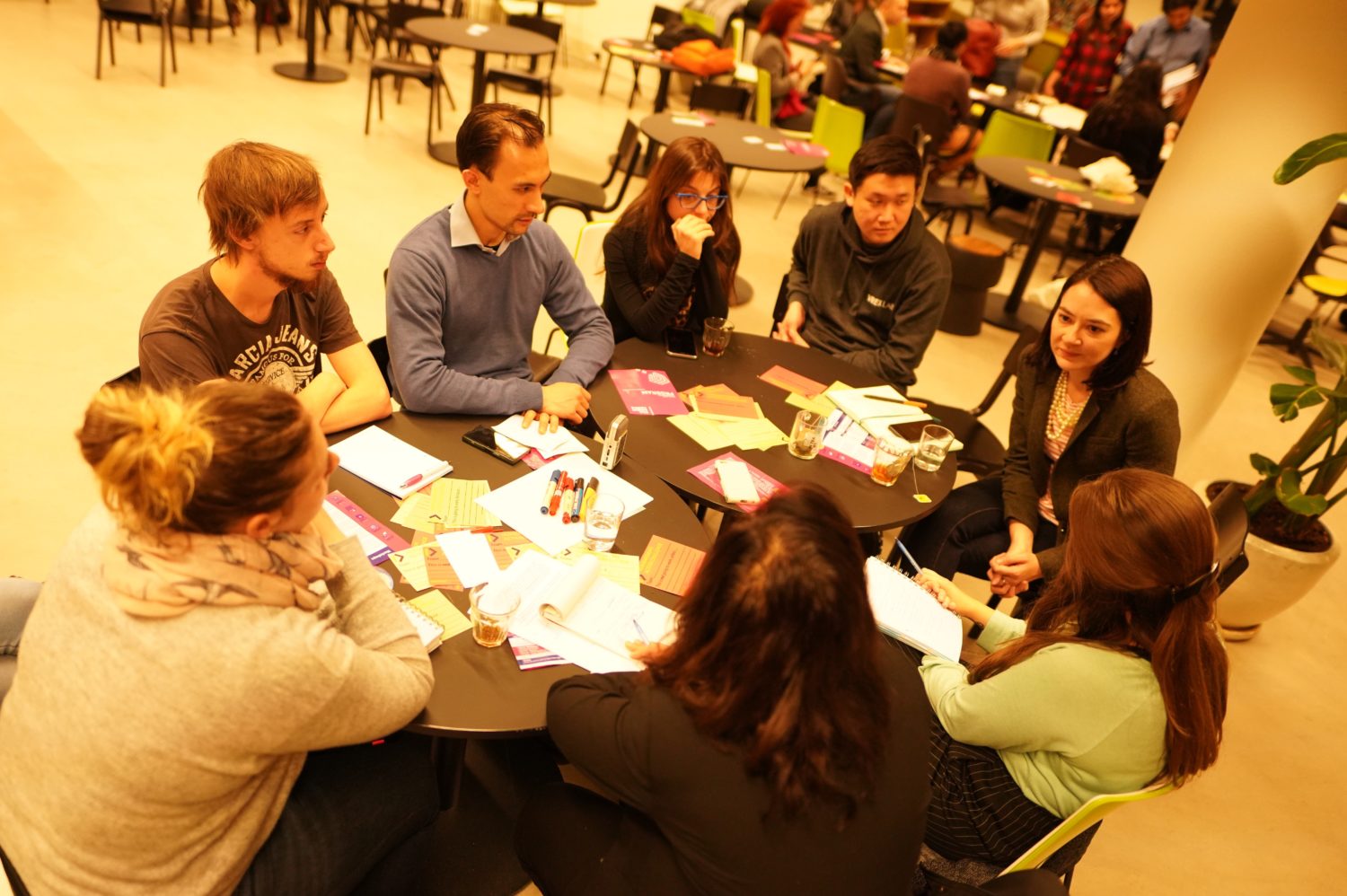
The North Korea group exploring the complexities of this human rights issue
On December 14th, 2018, The Hague Peace Projects organized the second annual Hague Hacks to connect technology professionals, start-ups, and human rights defenders to explore and brainstorm possible technological solutions to human rights issues. Five human rights issues in particular were chosen for this year’s festival: the current polarizing role of social media in Bangladesh; the potential for technology to increase security in Sudan; the freedom of the press and the safety of government critics in Rwanda; the tracking and monitoring the North Koreans slaves outside of North Korea; and the protection of personal data from the government of Pakistan. Participants were encouraged to learn as much as they could about the context and the complexities of these issues before the event.
On a rainy Friday morning in December, the speakers and participants arrived at the Humanity Hub in The Hague. An atmosphere of excitement began to build as The Hague Peace Projects Director, Jakob de Jong, welcomed everyone. Jakob presented The Hague Hacks as the “kick-off” event that will launch a year of planning, collaborating, meeting with experts and committees, fine-tuning, development, prototypes and implementation of these ideas to create actual and sustainable solutions. He explained that The Hague Hacks is not simply a one-time meeting that all participants can feel good and forget about the next day. On the contrary, it’s a continuous, long-term commitment to connecting tech experts and human rights defenders. The Hague Hacks event is designed as a festival to celebrate these kinds of partnerships and foster an environment to stimulate new innovation and collaboration.
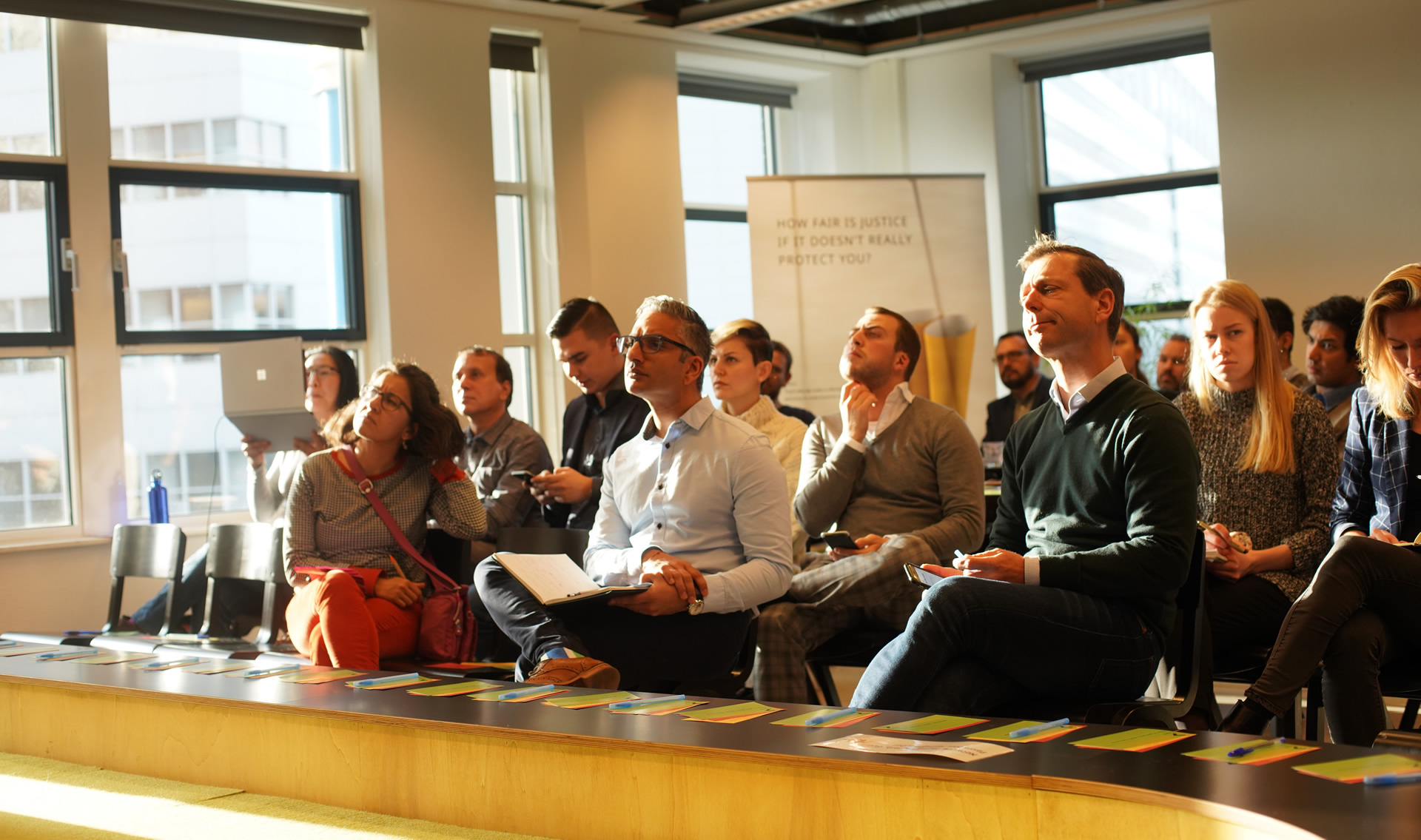
Addressing the crowd at The Hague Hacks Festival
ImpactCity also took the stage. As our principle sponsor for this event, they repeatedly and demonstrably supported The Hague Hacks at every stage of the Festival. ImpactCity believes that economic success and social impact go hand in hand. As such, they try to foster a welcoming and supportive space in The Hague for Start-Ups and Scale-Ups. They also have a program called the Humanitarian Action Challenge, which aims to stimulate cooperation between business and NGOs. The winners of the Humanitarian Action Challenge were invited on stage at The Hague Hacks Festival to say a few words about their experiences developing technology to defend and promote human rights issues across the globe. Hack the Planet, Be Data Driven, and Timby were also in attendance, sharing their knowledge and inspiring participants to blend technology and human rights activism to create effective and long-term solutions.
A traditional Syrian lunch was served by Ya Laziz, a project from The Hague Peace Projects work groups. Guests enjoyed falafels with all the fixings, and madlouka for dessert.
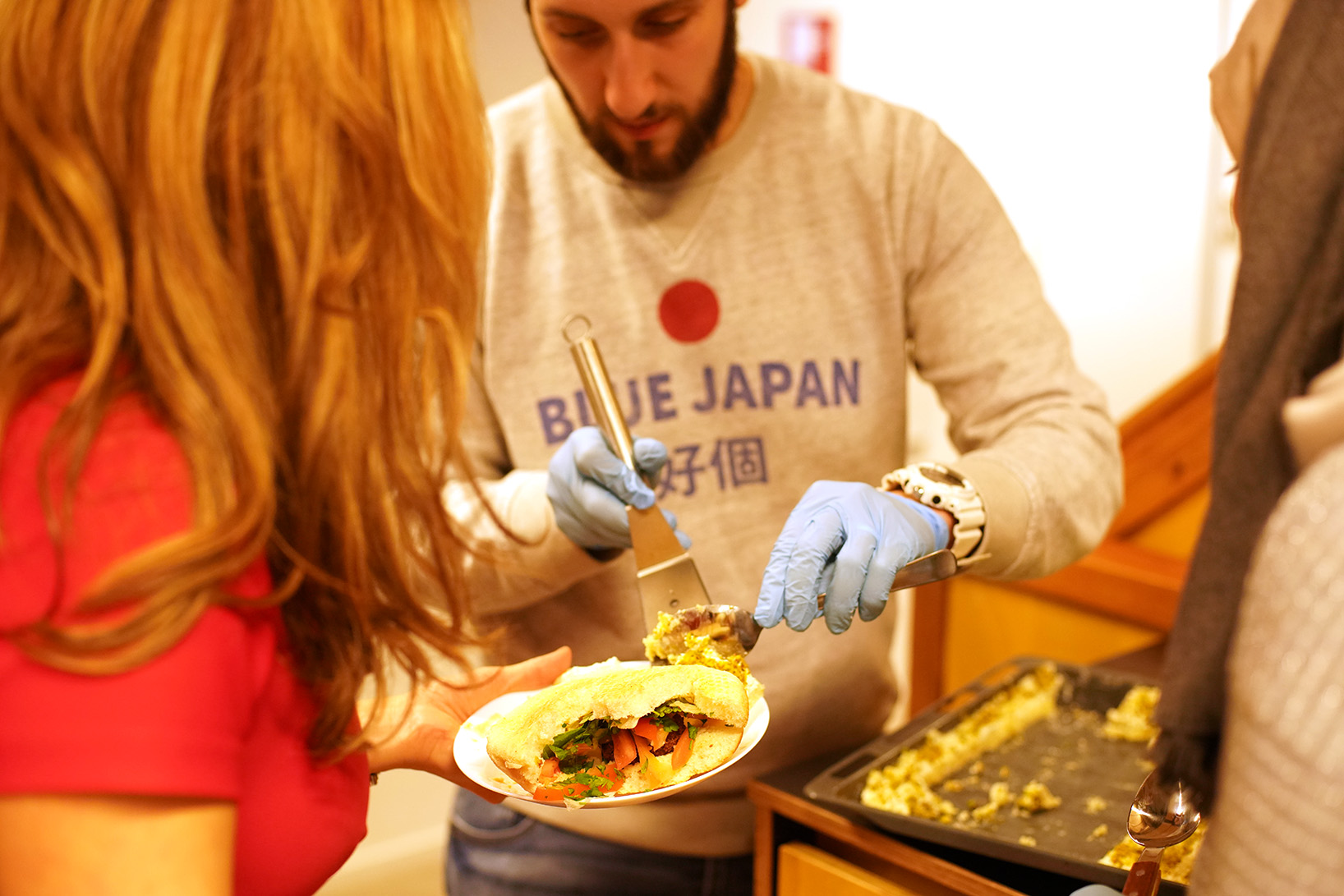
A delicious traditional Syrian lunch served by Ya Laziz
With full stomachs, participants embarked on the first workshop: The Discovery Workshop. Here, participants were asked to gather in groups according to one of the five human rights issues that they wanted to focus on. The purpose of this workshop was to explore the issues in depth with a human rights expert for each region. Participants had the opportunity to ask questions and learn about the context, the actors and the challenges involved before identifying how technology could provide a viable and sustainable solution.
After a short break, everyone returned to their groups to tackle the second workshop: The Focus Workshop. It was finally problem-solving time. The Humanity Hub was abuzz with discussion. Participants collaborated together: sharing their knowledge, skills and talents to explore the potentials of technology and brainstorm innovative ideas. People of every age, gender, ethnicity, religion, background and profession were united in their conviction to create innovative tech solutions. To see such diversity and yet so much unity was heartwarming and inspiring. All groups engaged in interesting, passionate and fruitful discussions. Of the five groups tackling their respective issues, the Bangladesh and Pakistan groups succeeded in developing viable and plausible technological solutions.
Since the event in December, these two groups have continued to meet regularly to grow their ideas. As part of the next step in The Hague Hacks process, they will present their ideas to two committees. First, they will present their idea to a human rights committee composed of several experts in the dynamics and complexities of their respective human rights issues in Bangladesh and Pakistan. Second, a business and technology committee will assess the viability, the longevity and financial sustainability of their ideas. These committees will provide feedback and constructive criticisms to ensure that these ideas can transform into appropriate, respectful, long-term and successful technologies.
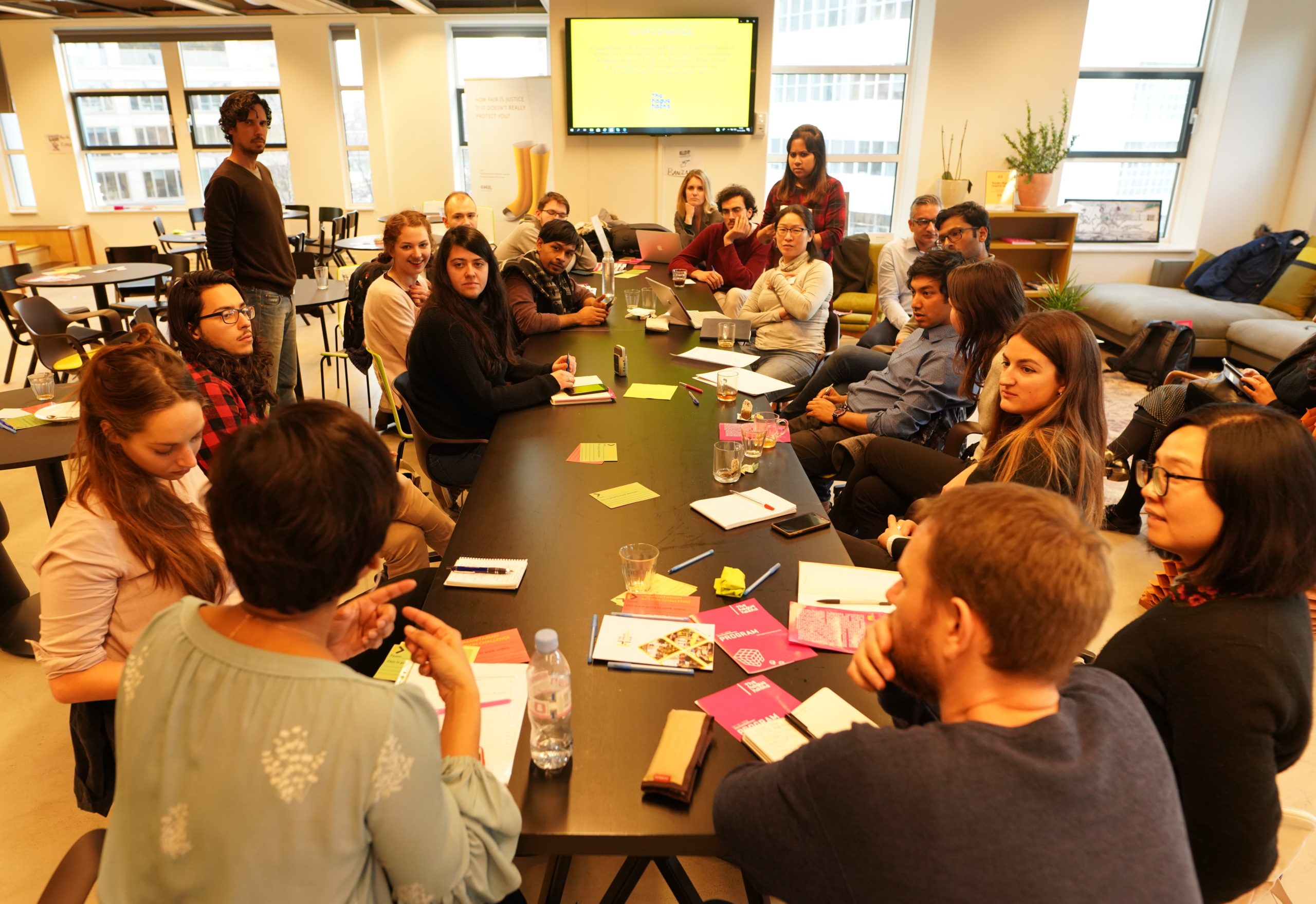
The Bangladesh group collaborating and brainstorming possible technological solutions
The Hague Hacks would like to thank a few people and organizations without whom this event would not have been possible. An enormous thank you to our partners: The City of The Hague/Gemeente Den Haag, Impact City, and The Hague Peace Projects. We’d also like to thank our wonderful host, The Hague Humanity Hub. Thank you to all of the volunteers who helped plan, promote, organize, and execute the event. Moreover, thank you to all of the speakers and experts who donated their time and knowledge to make this collaboration between tech and human rights come true. Finally, thank you to all of the participants who engaged with our speakers and experts, expressed unrestrained passion for helping solve these humanitarian problems, and continue to create and problem-solve viable technological solutions. See you all again next year.
